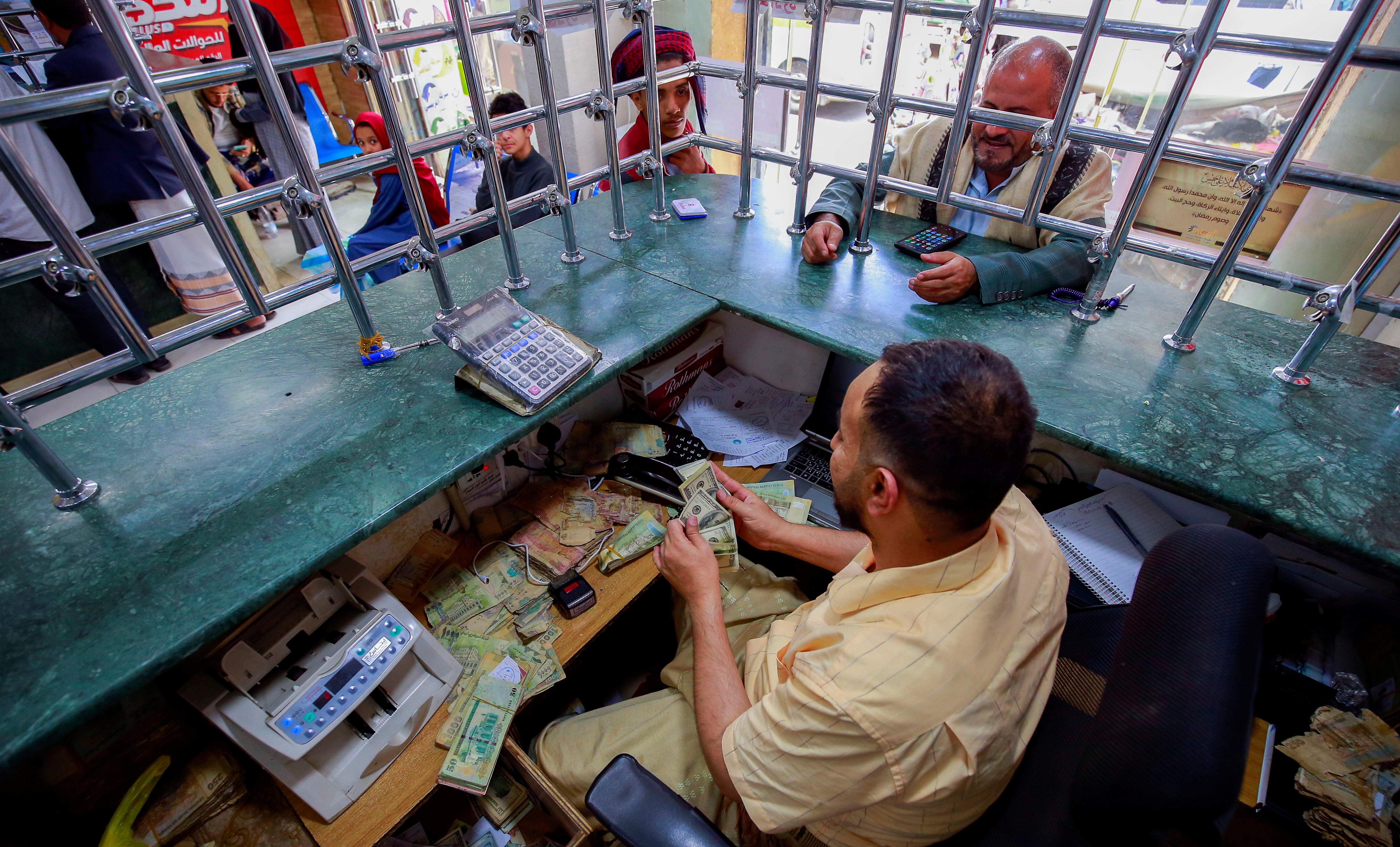
A currency exchange worker sits in Sanaa, June 28, 2021 (REUTERS/Nusaibah Almuaalemi)
30-05-2024 at 9 PM Aden Time
Aden (South24)
Today, the Central Bank of Yemen (CBY) in the capital, Aden, announced the implementation of several measures targeting the economy of the Iran-backed Houthis, including sanctions on some of the largest commercial banks in the country.
In its decision, a copy of which was obtained by the South24 Center, the CBY suspended dealings with six banks that it said had not responded to instructions to move their headquarters from the Houthi-controlled Sanaa to Aden.
The targeted banks included: Tadhamon Bank, Yemen Kuwait Bank, Shamil Bank of Yemen and Bahrain, Al-Amal Microfinance Bank, Al-Kuraimi Islamic Microfinance Bank, and the International Bank of Yemen.
"The suspended banks did not comply with the laws and regulations against money laundering and terrorist financing and continued to deal with the Houthis, which is designated as a terrorist group," the statement said.
The decision comes just two days before the end of the sixty-day deadline, announced by the central bank on April 2, for Sanaa-based commercial banks, Islamic banks, and microfinance banks to transfer their main headquarters to Aden.
Related: The Aden CBY’s Deadline for Banks to Move their Headquarters is about to Expire
A source working at the Sanaa-based CBY told the South24 Center in a previously published report that four of these banks had informed the CBY in Aden of their refusal or inability to move their headquarters, citing multiple reasons including a lack of cash liquidity.
In a separate decision, the Aden-based CBY gave institutions and individuals 60 days to deposit old denominations of Yemeni riyals printed before 2016. A source at the bank told South24 that this measure is a prelude to issuing replacements for these older currency notes.
The decision is intended to target the Houthis, who for nearly four years, in their areas of control in North Yemen, have prohibited the use of the new Yemeni riyal currency printed by the internationally recognized government.
The Houthis' actions have caused a significant disparity in the value of the Yemeni riyal between the regions they control and those under the control of the Yemeni government, with the exchange rate of the US dollar at 530 Yemeni riyals in Sanaa, compared to 1,750 riyals in Aden.
The Houthis accuse the Yemeni government of printing the Yemeni riyal without adequate foreign exchange backing. However, food prices remain relatively consistent between Houthi-controlled areas and those under the Yemeni government’s control, while millions of Yemenis stand on the brink of famine.
In a speech broadcast on Al-Masirah TV today, Houthi leader Abdulmalik Al-Houthi accused the United States of launching an economic war against Yemen, calling it a service to Israel and a response to his group’s positions and military operations against ships.
Al-Houthi said: “I advise Saudi Arabia to be careful not to involve America in putting pressure on banks in Sanaa and entering into a dangerous plot.”
In November 2022, oil exports came to a halt in Yemeni government-controlled areas after Houthi drone attacks targeted oil ports in Shabwa and Hadramout in South Yemen.
Related: One Year Since the Houthi Attacks on South Yemen’s Oil Ports Halted Exports
South24 Center